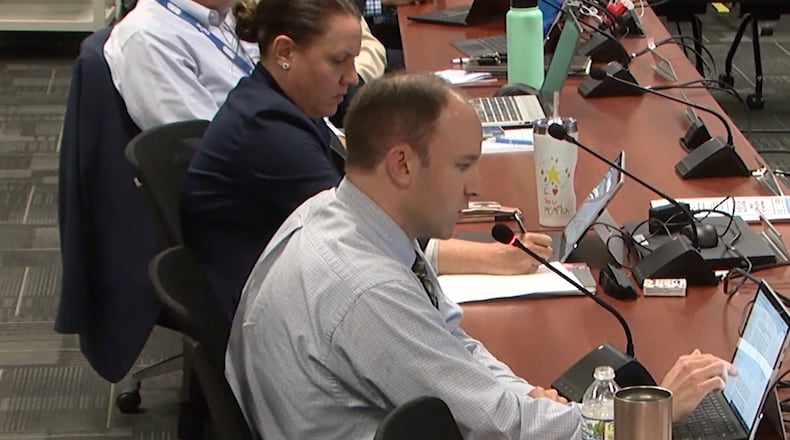The school board currently has 19 members, 11 of whom are elected by Ohio voters and eight of whom are appointed by the governor.
If Senate Bill 1 passes, the state superintendent position would become an adviser to a director of education, who would be appointed by the governor. One of the powers the state board of education currently has is appointing a state superintendent to oversee the Ohio Department of Education.
However, the state superintendent position has gone mostly unfilled for the last two years, after former state superintendent Paolo DeMaria retired in September 2021 after five years on the job. The job was very briefly filled by former state school board member Steve Dackin, but he resigned after about a month on the job due to concerns about how he was appointed and accusations of ethics violations.
The interim state superintendent, Stephanie Siddens, who has overseen the department for most of the last two years, recently announced plans to take a deputy superintendent position at Upper Arlington schools in Columbus. It’s not clear yet who might replace her.
State senators who have proposed the bill have cited concerns about a lack of a state superintendent, along with wanting to get more focus on career technical education, as reasons why the bill is being strongly considered.
The state board’s vote on its resolution was 13-6, and some board members who typically do not align with one another voted on the same lines.
Brendan Shea, a conservative member of the board who represents Greene and Clark counties, wrote the resolution. Shea was the member who put forward a 2022 resolution opposing the Biden administration’s expansion of rights to LGBTQ+ students.
Shea was joined this week by Christina Collins, a state board member from Medina who was strongly in opposition of Shea’s previous resolution. But in this case, Collins worked with Shea on an updated resolution.
Some board members who voted in favor of the resolution said it would help them remain transparent and open with the public, as elected officials, while putting changes into place that may also help address worries the state board of education hasn’t been doing what it is expected to do.
“The rifts between what many of us believe are quite wide, but it is the right of Ohio citizens to hear that discussion, to hear that debate, and to have their elected officials sit here and bring the beliefs of their constituents or themselves to the table to be heard in a public forum,” said board member Michelle Newman of Newark.
Brandon Kern, an appointed state board of education member from Fairfield County, said he worried about the way the board currently functions, and said he feels the board can sometimes “bog down” the process of getting things done. Kern ultimately voted no on the resolution.
“I’ve talked a lot to the community school groups who are very concerned about the responsiveness of how the board has been able to work with the department on some of their needs,” Kern said.
About the Author

